Black mould in pensioner's house a 'serious risk to health'
- Published
Angus Sinclair, 89, says mould in house is starting to go for his chest
An 89-year-old man living in a house with "unacceptable levels of black mould" has said it and damp are contributing to his ill health.
Angus Sinclair has been admitted to hospital several times in recent months, including for chest complaints.
A housing expert said nobody should live in such conditions after finding "unacceptable levels of black mould which are a serious risk to health".
"The way this house is, it's not doing me any good," Mr Sinclair told the BBC.
Black mould is a microscopic fungus - people living with it are more likely to suffer from respiratory illnesses, infections, allergies or asthma.
However, despite this, a shortage of suitable social homes nearby means that has not been possible.
"I'm in and out of the hospital with pains," said Mr Sinclair, who lives in Derrymacash, County Armagh.
"It is beginning to go for my chest.
"But at the same time, where can I go, what can I do?
"I'm not looking for a palace, I'm just looking for some place where my daughter can come up and check on me."
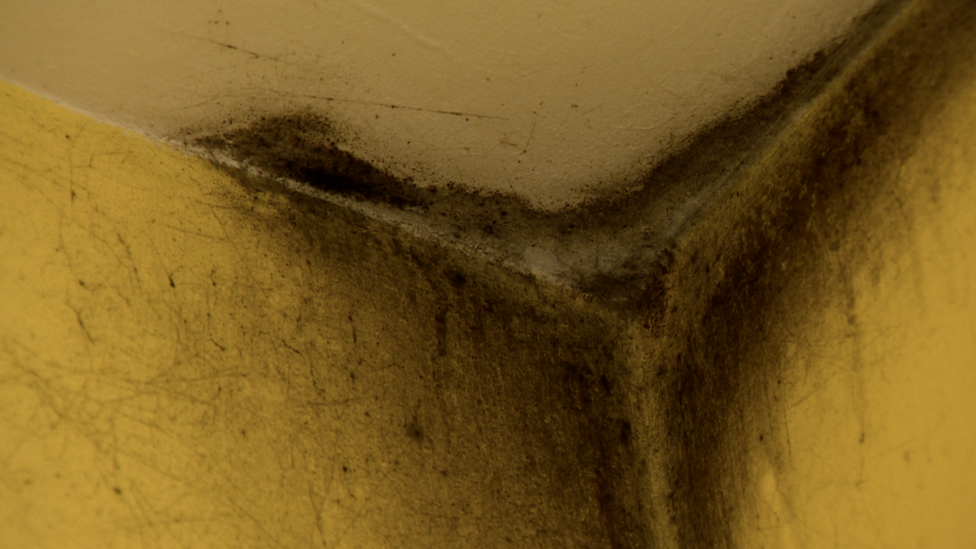
Black mould can contribute to a number of health issues
The pensioner said it was important to be close to his doctor and daughter in Lurgan because of his age and vulnerabilities.
He added that if he lived somewhere else, he believes his health and wellbeing would be "a thousand times better".
The property is rented from a private landlord.
The landlord said he acknowledged the conditions are not appropriate within the property.
He issued an eviction notice several months ago and has plans for a replacement dwelling but said he cannot put Mr Sinclair "out on the street".
The pensioner is now considered homeless; one of almost 2,500 people in Northern Ireland between April and June this year.
The NIHE said it has found a number of places it believes meets Mr Sinclair's needs but these are outside the area where he currently lives.
"We will continue to work with Mr Sinclair, as we fully understand his situation and the need to get it resolved as soon as possible," a spokesperson said.
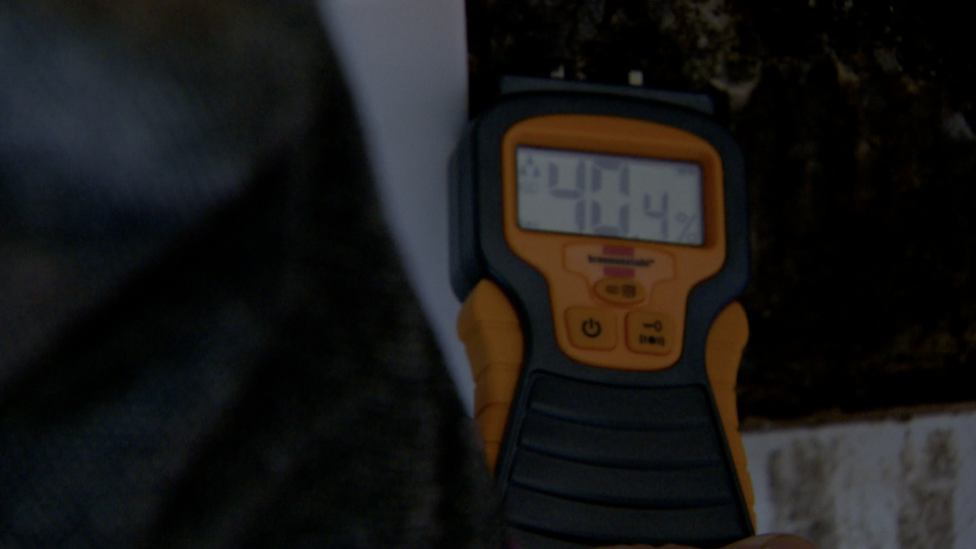
A damp reading of 40% was recorded in the bathroom of Mr Sinclair's home
Mr Sinclair has turned down offers of accommodation in Dromore and Armagh, which are approximately 10 and 16 miles away, because of his age and wish to be close to his GP.
"North Lurgan is the applicant's area of choice and we currently have 259 applicants on the waiting list for this area, requiring one bedroom, ground floor accommodation," the NIHE spokesperson added.
'Dangerous toxic material'
An expert who has researched the impact of indoor air quality on health visited the property in September.
He described the conditions as "very serious".
Dr Tom Woolley, a former professor at Queen's University Belfast, used a damp meter in the bathroom where he immediately got a reading of 40%.
"That is over double what would normally be acceptable," he said.
"The health effects of this kind of mould growth are very serious. They can cause serious respiratory and mental health problems.
"Nobody should be living in these conditions."
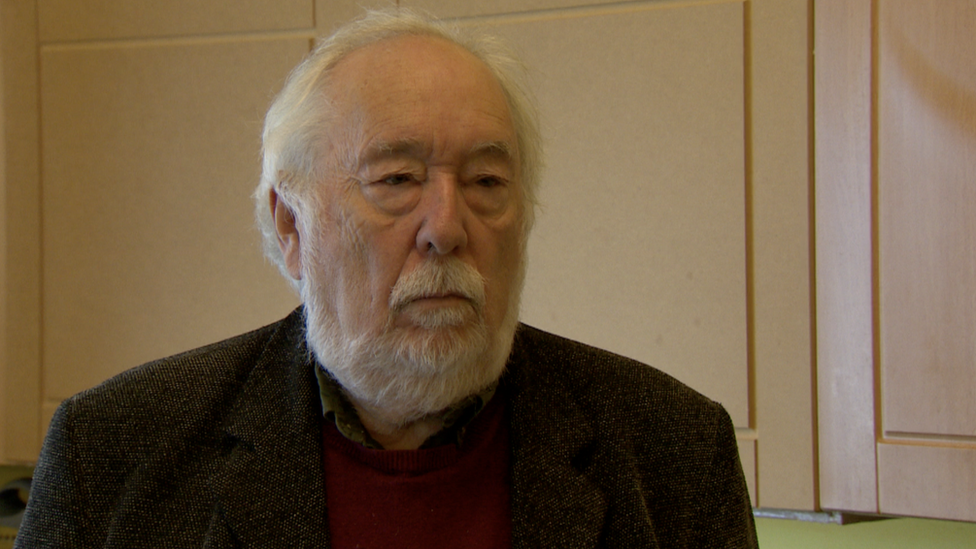
Dr Tom Woolley visited Mr Sinclair's home last month
Dr Woolley said Mr Sinclair should be moved out immediately.
"He's sleeping and breathing this dangerous toxic material. This is a serious health problem that shouldn't be allowed to drift on month after month."
The Housing Executive said: "In February 2022, Environmental Health carried out an inspection at Mr Sinclair's property and their report deemed it to be fit for habitation.
"A year later, a second inspection was carried out and the property was again deemed fit for habitation."
A spokesperson for Armagh, Banbridge and Craigavon Borough Council said this was in accordance with Article 46 of the Housing (NI) Order 1981, as amended in 1992.
"Whilst condensation mould and disrepair were evident, the property was deemed to be fit in accordance with the above legislation.
"However, the council, following discussion with the tenant, highlighted the issues identified during the inspection with the landlord and outlined the remedial works to be carried out.
"The report to the NIHE also highlighted the issues identified."
The Southern Trust said its social work team has been working with Mr Sinclair and the Housing Executive to find a suitable solution.
A spokesperson added: "Health and social care trusts have a duty to prioritise residential, nursing home and hospital care for those whose needs cannot be supported in any other way.
"For Fold accommodation, the service user will apply to the Northern Ireland Housing Executive who will assess if they are eligible for housing benefit."
Related topics
- Published13 February
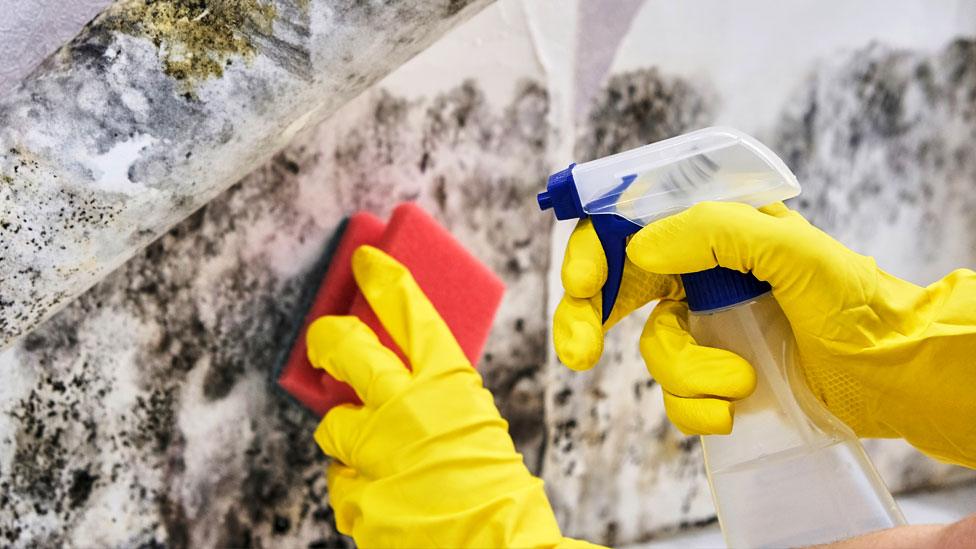
- Published30 June 2023
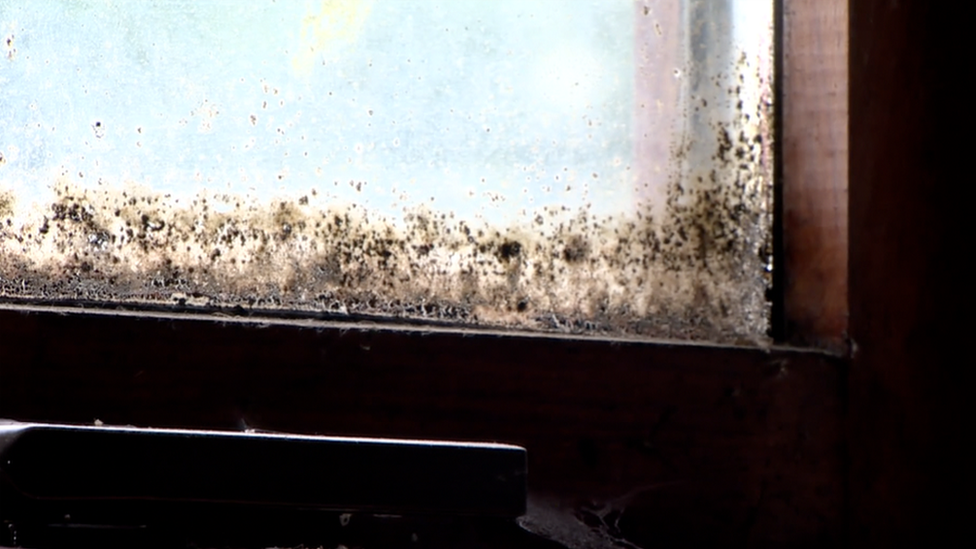
- Published24 January 2023
